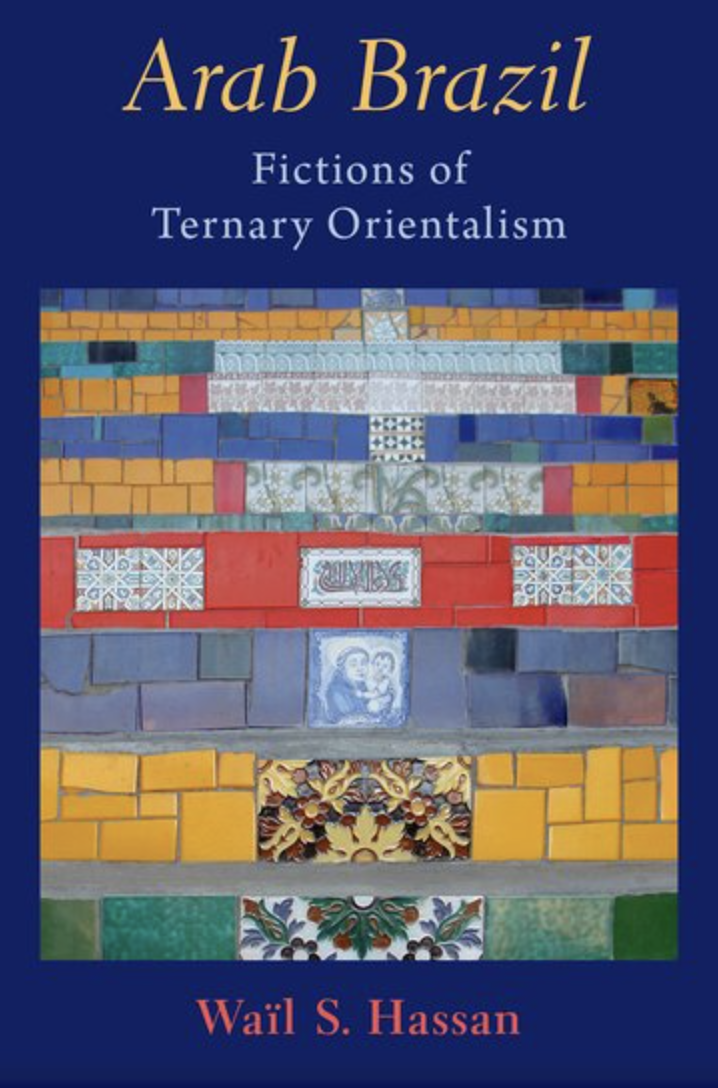
Until recently, Arab-Brazilian relations have been largely invisible to area studies and Comparative Literature scholarship. Arab Brazil: Fictions of Ternary Orientalism (Oxford University Press, 2024) is the first book of its kind to highlight the representation of Arab and Muslim immigrants in a century of Brazilian literature and popular culture, from the 1920s to the present, revealing anxieties and contradictions in the country’s ideologies of national identity.
Waïl S. Hassan shows how Brazilian novels, short stories, and telenovelas depict the Arab East paradoxically as a site of both otherness (different language, culture, and religion) and solidarity (with cultural, historical, demographic, and geopolitical ties). Hassan explores the differences between colonial Orientalism’s binary structure of Self/Other, East/West, and colonizer/colonized, on the one hand; and on the other hand Brazilian Orientalism’s ternary structure, which defines the country’s identity in relation to both North and East.
Praise for Arab Brazil:
“Arab Brazil is a theoretically sophisticated and elegantly written assessment of what Brazilian and Arab-Brazilian writings and television tell us about how Brazilian culture understands the Arab world and how the presence of Brazilians of Arab origin highlights the limits of the Brazilian ideal of mistura. On the one hand, Hassan's study astutely explains Brazilian Orientalism as one that is ternary, in the sense that it is not based on binary opposition, but on a triangulation in which Europe and North America remain at the apex. On the other hand, this book demonstrates that many of the manifestations of Brazilian Arabness, whether mathematics textbooks, novels, or television series, due to their stereotyping and Islamophobia, point to the fact that mistura is still only aspirational.” — Christina Civantos, University of Miami
“Waïl Hassan argues that Arab Brazilians feel effects of a ternary Orientalism, which adds the Global South to the standard Brazil-Europe post-colonial sphere. While deep ancient roots of Arabic culture and language in Iberia gave Arab immigrants to Brazil a special status, promoted by novelist Jorge Amado, other authors repeated images of European Orientalism to exoticize them, thereby disrupting a national self-definition based on mixture and assimilation. Hassan brilliantly follows their fictional portrayal from early Arab Brazilian novelists to prominent works by major novelists including Raduan Nassar, Milton Hatoum, Nélida Piñon, and Alberto Mussa. Arab Brazil brings the wide range of Arab immigrants into the center of Brazilian literary and social history.” — Kenneth David Jackson, Yale University
“It is hard to overstate the value and significance of Waïl Hassan's fine new book. By bringing a rigorous comparative perspective to the critical study of the enduring and salient presence of Islam and Arabic culture in the literary and popular cultural production of a majority Catholic country spanning the last one hundred years, Hassan crucially addresses a long-standing scholarly gap in literary studies. But Arab Brazil goes considerably beyond filling a scholarly gap. It succeeds in moving both Luso-Brazilian and postcolonial literary and cultural studies in a provocative new direction by incisively exploring the fundamentally different form that "Orientalism" assumes in Brazil. Hassan's book will prove of inestimable value not only to scholars of Luso-Brazilian literary cultural studies but postcolonial studies more generally.” — Luís Madureira, University of Wisconsin-Madison